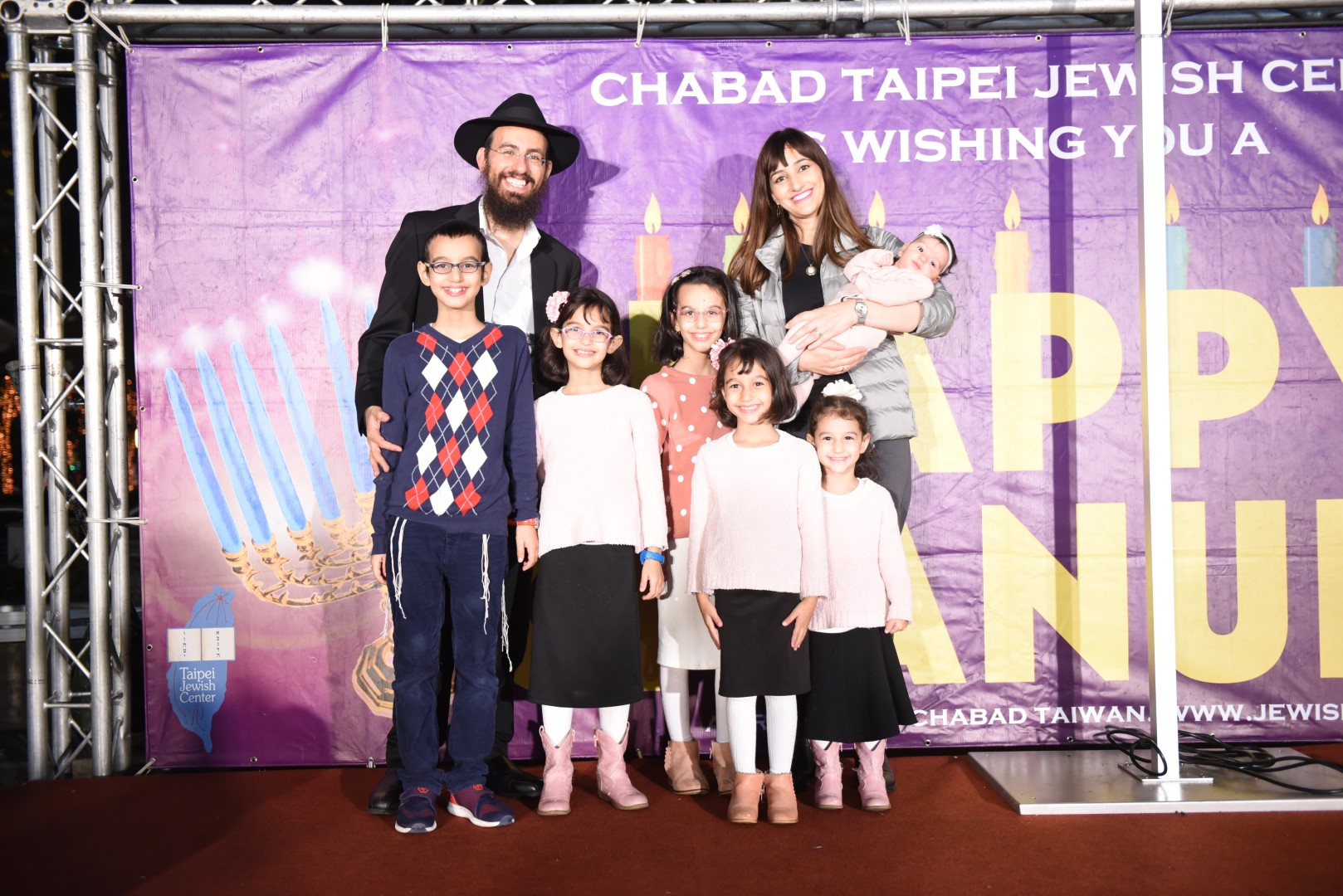About Chabad Taiwan
After opening in the summer of 2011, Chabad Taiwan, which we named The Taipei Jewish Center, soon established itself as the hub of Jewish life in Taiwan.
Among Taiwan’s 24 million residents, there are roughly 1,000 Jews. Businessmen, students, teachers, and diplomats: our community is comprised of Jews from a variety of backgrounds and hail from several different countries, from the US to Israel, from Argentina to the Netherlands.
Shortly after opening the TJC, we began supplying the only authentic kosher food in Taiwan, and conducting synagogue services, for Jews based in Taiwan and travelers here on a shortterm visit.
Shabbat meals and services had, b”h, quickly become extremely popular with the local community, catering to students, businessmen, visitors, and their families.
Just two months later, with the help of one of our community members who volunteered the venue, a Sunday School was founded, with 19 children enrolling. The children study Hebrew, Jewish studies, and Jewish traditions, in a fun and enriching way.
Our mission is to serve as an active Jewish center, where both Jews living in Taiwan, and Jews visiting Taiwan, can enjoy a warm feeling of ‘Home away from home.’ We want to ensure that no Jew feels left behind.
Please contact us with any questions at info@jewish.tw


